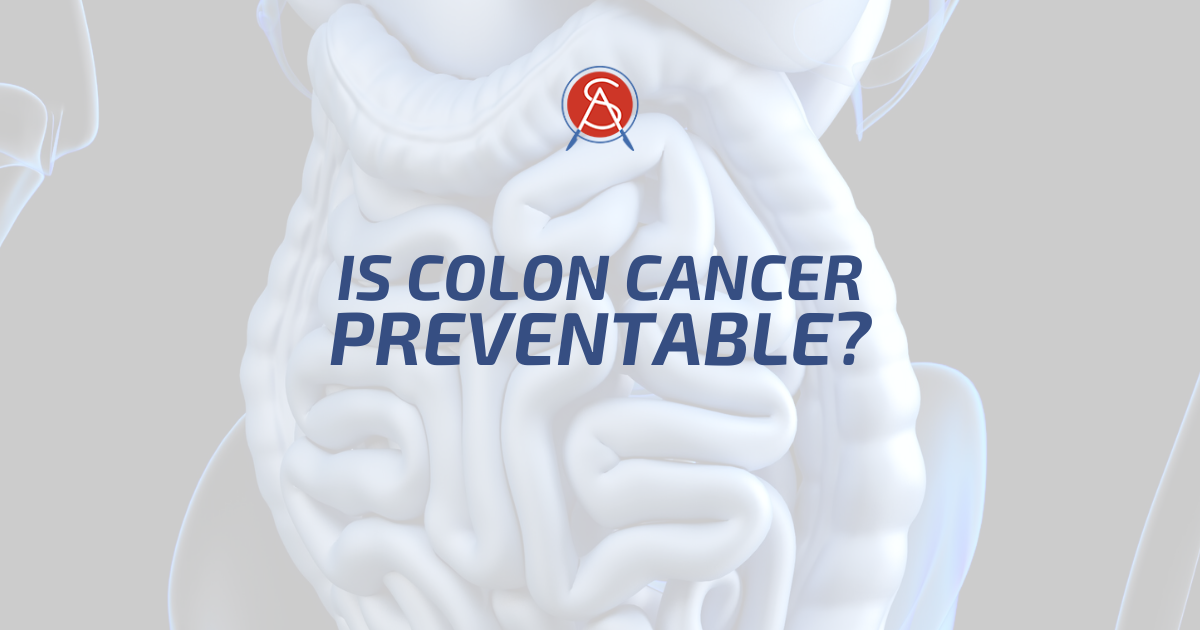
A colon cancer diagnosis is extremely worrisome for many patients. Even if the cancerous lesions are easily treatable, patients question whether they are now more likely to get other forms of cancer. Many ask themselves if they could have done something to prevent it.
Fortunately, while colon cancer is very prevalent, many cases can be treated successfully in their early stages. Further, improved screening guidance has meant that more patients are catching pre-cancerous polyps early and having them removed.
But can colon cancer be prevented entirely?
To answer this question, we have to understand the causes and risk factors of colon cancer, some of which are modifiable and others that are not.
Dietary Patterns
What we eat can make a big difference in colon and gut health. Highly processed, high sugar foods which have become the norm in the modern diet can actually have a significant detrimental effect when it comes to colon health. The results can often mean development of pre-cancerous lesions at an earlier age and increased severity. However, modifying our diet is the easiest and most effective way of reducing that risk. Avoiding high sugar, high fat and high carb foods and instead consuming whole grains, fruits, vegetables and high fiber foods make a difference.
Genetic Factors
However, colon cancer also has a genetic component. Genes and family history can play a significant role in the risk, so if close family members have had any form of cancer, but especially colon cancer, a heightened cancer screening regimen will likely be suggested by your doctor.
Aspirin’s Potential Role in Prevention
There is some data to suggest that low-dose aspirin, often used in patients with cardiovascular disease, may also have a protective effect on colon cancer. However, we do not recommend that patients begin a low-dose aspirin regimen unless specifically ordered by their physician or specialist.
With all the above being said, it is estimated that 75% of all colon cancers occur in patients with no known risk factors!
Screening is Key
The key to prevention is screening. Your doctor will suggest a screening regimen based on your specific risk profile. You may start early, or you may need to be screened more often or both if you have certain risk factors or a family history of cancer. Screening is most effective in the form of a colonoscopy rather than stool-based tests such as Cologuard. While many patients dread the process, colonoscopy ultimately yields the best visualization of the colon. With proper screening, any pre-cancerous lesions or polyps in the colon can be removed during the colonoscopy often preventing cancer entirely.
The most important take away is that colon cancer can be prevented or detected early with proper lifestyle choices and by following screening procedures outlined by your doctor and based on your risk. So, please take colon cancer seriously and remember there is something you can do about it! For more information, please schedule a consultation with our colorectal specialist Dr. Gregory Quatrino.
Related Topic:









